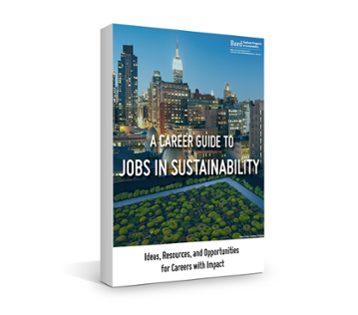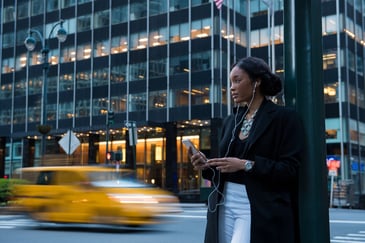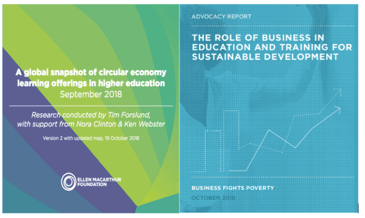The Future of Business: Companies Becoming More Sustainable
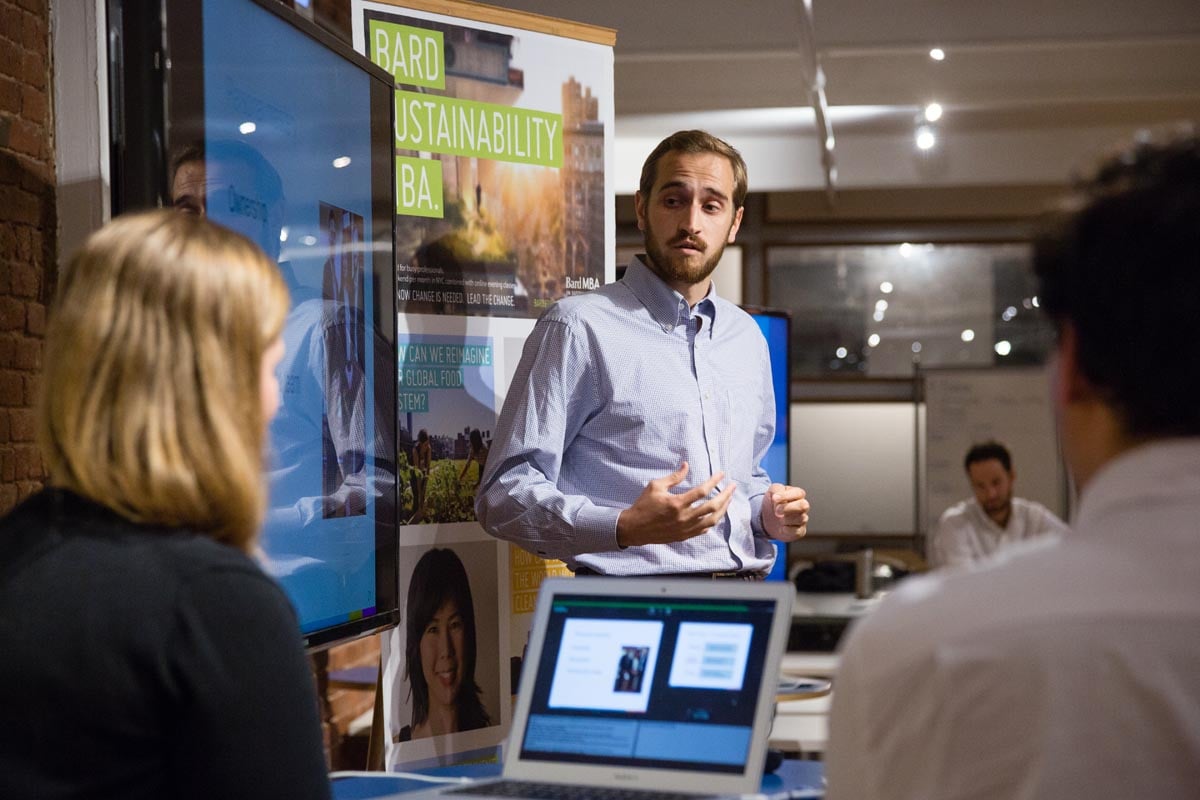
Walk out of our MBA classroom in downtown Manhattan, and you can see big signs that sustainability is sexy—literally, big signs—Vornado: "NYC’s Most Sustainable Landlord" and Sprint: "Environmental Stewardship/Ethical Sourcing."
Business sustainability has come a long way very quickly. In an era of transparent supply chains, IT-enabled local production, expanded entrepreneurial opportunities, megacity growth, climate change, water shortages and other sustainability issues, and millennial demands for meaningful work, it is not going away. More and more large companies are competing on sustainability because it is now understood there is a competitive and reputational advantage to sustainable business. These will be the businesses that will thrive in the future.
Consumer demand for sustainable business practices
Truthfully, the population’s growing concern for long-term sustainable development is a large part of why businesses are becoming more mindful about integrating sustainability throughout their current business models. Data from the 2015 Nielson annual Global Corporate Sustainability Report revealed that 66 percent of consumers would rather spend more on a product produced by a sustainable brand than a product that was traditionally manufactured by a cheaper brand. That’s over half of consumers! Furthermore, Nielson data showed that 73 percent of millennials are willing to pay the higher price of sustainably manufactured goods.
Why is sustainability important to consumers?
Millennials are now the largest generation working in today’s industries. They not only think differently in terms of business operations, but they also think differently in terms of how they spend their money. Millennials refuse to participate in, or support, organizations without a passion and purpose beyond making money. This generation is obsessed with personal fulfillment and the big picture. The successful companies of the future will embrace sustainable practices with that in mind; the companies that don’t accommodate this generation of activists are going to fall behind.
Companies becoming more sustainable will have a reputational advantage

In a world where consumers are readily informed, brand image is more important today than ever before. Why? Because brands radiate a personality that consumers crave. A brand is a company’s reputation, and while a variety of consumers may practice brand loyalty, the HuffPost revealed that 94 percent of consumers will switch brands to support a cause.
What's more—Sustainable Brands reported that "81 percent of consumers say they will make personal sacrifices to address social, environmental issues."
Doing the brand work—banking on sustainability in business
Brands have the power to communicate a positive reputation and build an authentic relationship with their consumers. Forbes states that, "Brands are psychology and science brought together as a promise as opposed to a trademark."
In a world dominated by millennial culture, brand promise makes an impact. Brand is so powerful that Forbes goes on to explain how companies are starting to put "the value of their brand on their balance sheet."
Spotlight on sustainable companies: Patagonia
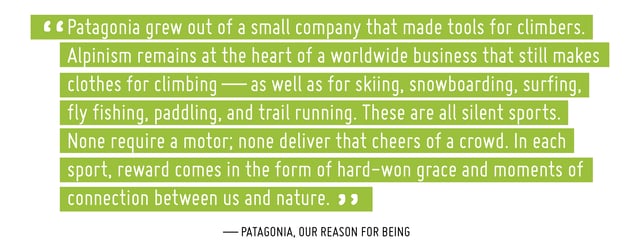
Patagonia was founded in 1973 by a true outdoorsman: Yvon Chouinard. His love for climbing and the outdoors escalated into a lifelong passion for giving back to the environment through sustainable business.
The company practices one of the more innovative business models, founded on an integrated bottom-line philosophy: when doing the right thing for the planet does the right thing for people, and doing the right thing for people does the right thing for profit (and vice versa).
Let's take a look at these sustainable practices in action:
- 1% for the Planet — Since 1985, Patagonia has donated 1% of its profit to the preservation and restoration of the natural environment, primarily to domestic and international grassroots environmental groups making a difference in their communities. In 2002, Yvon Chouinard created a nonprofit with the same name to encourage other businesses to do the same.
- A Family Business — Patagonia does a number of things to promote its “family business” philosophy, such as paid time off for family obligations and on-site child care for working parents. In 1983, Patagonia established on-site child care for working parents.
- Company Activism — Patagonia believes that environmental protection and preservation is a personal responsibility. They don’t just advocate change—they are the change.
- Worn Wear — Because 85% of clothing ends up in landfills or gets incinerated, Patagonia created the Worn Wear program to trade in and buy used Patagonia gear. The gear gets used longer, and it reduces overall consumption.
But what makes Patagonia a great example of sustainability through business leadership and innovation? Simply put—the Patagonia brand understands that a company that neglects mindful business decisions, work-life balance, and environmental efficiency is not going to reap the return of long-term value.
Why it Matters: Rather than being easily intimidated by the responsibility and time commitment required by sustainable change, Patagonia demonstrates how this reform is an opportunity to promote innovative tactics that yield a greater return on investment (ROI) and increase competitive advantage.
Sustainable practices improve operational efficiency and product design, create greater employee engagement and productivity, provide strategic advantage, and, ultimately, enhance customer loyalty.
What companies becoming more sustainable means for your career
In response to sustainable trends such as millennial-consumer demands, most MBAs have added a course or two in sustainability, yet 90 percent of what they teach is still single bottom line, make-as-much-money-as-you-can (without breaking too many laws) type of business ideology.
In contrast, Bard is revamping what it means to have an advanced degree by building a graduate business curriculum that bakes sustainability in from the ground up. Bard's mission is to educate leaders to grow mission-driven businesses and non-profits and to transform existing organizations to a focus on social and environmental purpose. Through the success of our community, we transform business education—and business—globally.
To fulfill its mission, Bard created an array of sustainability programs, including the MBA in Sustainability. This program offers the best possible academic training, real-world experiences, and career development opportunities that—all together—enable graduate business students to follow their passions and pursue successful, high-impact careers in sustainable business.
Are you ready to help lead the change?
Download our Career Guide to Jobs in Sustainability: Ideas, Resources, and Opportunities for Career with Impact


